We hope you found the first two parts of this series helpful, and this will be the final installment. To read Part 1, click here. To read Part 2, click here.
There Are No ‘Little’ Changes
When you are ready to have your plans drawn up, make sure you have everything in line. Even a change that you consider to be small could lead to significant changes to costs and the timeline of the project. Have you ever seen the movie “The Butterfly Effect,” how one small event ripples out to impact everything that follows? This is very much true in the construction industry, so start making your checklist early and ensure everything you want is in your plan before you start having your plans drawn up, and surely before they break ground on the home.
The Little Things
So, in the point above we talked about little changes, but we also want to address the little things, and yes, they are two different things. The little things are issues such as an outlet plate not being what you originally ordered. If you sweat every little issue, you will have a breakdown by the time you get the keys. There are some things that you are just going to have to let roll off your shoulders, so pick and choose the issues that you chose to “lose” it on.
Your Timeline
You know that timeline that builder gave you? Well, toss it in the trash can. Don’t get me wrong, a good builder will do everything in their power to meet the original timeline, but there are just too many variables that can impact the build that will inevitably delay it, most notably the weather, especially early on in the build. Realistically, the process will take about 18 months from the time you pick your lot and get things fired up. Based on supply chain issues, it might take a bit longer. Point being, do not back yourself into a corner by trying to time out your departure from your current home to the original delivery date on the contract because it is not likely to work out. Give yourself a cushion and stay in contact with the builder as the process moves along to get a realistic time frame of when you can get the keys and move in.
Know the Contract Clauses
The final piece of advice that we want to offer is for you to know the exact terms of the contract before you sign off on it. This is an area where you will find a residential construction consultant or project manager very helpful. There are basically two different types of contracts you will find: Cost-plus and Fixed-price.
The cost-plus contract means you, as the homeowner, are responsible for all costs plus the builder’s fees. In an ever-changing market, such as we have right now, rising inflation can crush you on the final price. You may have signed off on a $700,000 contract, but inflation and supply chain issues could result in a $775,000 home when all said and done.
For a fixed-price contract, find the escalation clause, because there is likely to be one in there for certain items. Remember what we said about discussing with the builder the stock they have on hand right now? Well, most of those items will be covered in a fixed-price contract, but the specialty items they have to order will not, which could still cause additional costs to the final price. Know the full terms of the escalation clause to avoid problems at settlement.



[…] To read Part 3, click here. […]